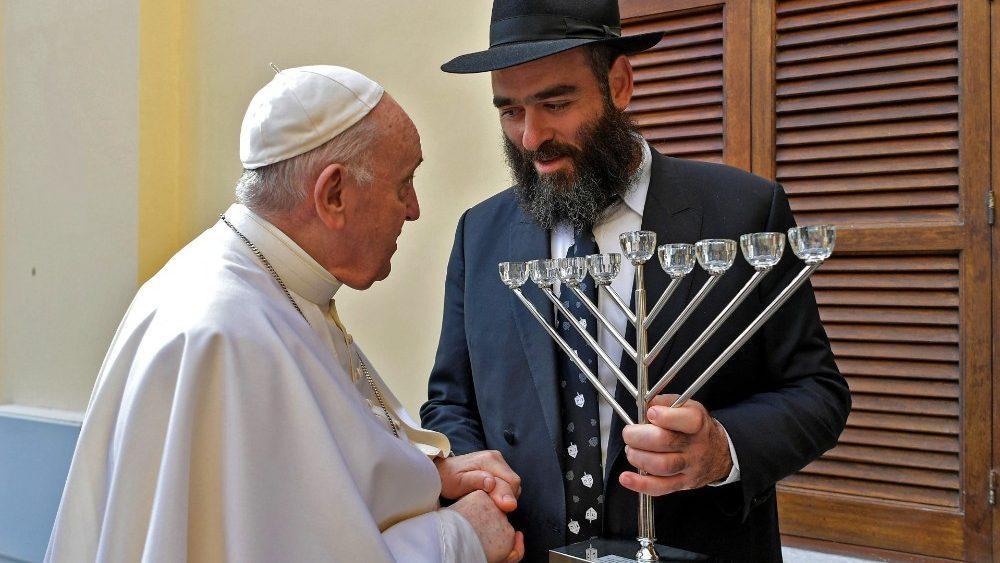Tensions Piqued Between Catholic Church And Jews, 60 Years After 'Nostra Aetate'
Differing views about the war in Gaza have cooled relations between the two major religions, but have not extinguished them.

Pope Francis met Chief Rabbi Arie Zeev Raskin of Cyprus in 2021.
The Israel-Hamas war, which began with the Oct. 7, 2023, Hamas massacre and quickly escalated to deadly armed conflict in Gaza, has strained relations between Catholic and Jewish leaders.
Following the initiation of the conflict, Pope Francis repeatedly questioned Israel’s use of force against Palestinian civilians and pondered whether Israel’s warfare amounted to a “genocide.” The late Pope was particularly invested in the welfare of Gaza’s tiny Christian community and called Holy Family Church, Gaza’s only Catholic church, where hundreds of Christians and a few Muslims have found shelter for two years, almost every day. On July 17, the church was hit by what the Israel Defense Forces called an errant IDF tank shell. Three Christians were killed and 15 persons were injured, including Father Gabriel Romanelli, the parish priest.
While Jewish leaders are grateful for his efforts to fight antisemitism and his outreach to Jewish communities, many believe Francis should have spoken out more forcefully against Hamas and other Islamic terror groups and that he was overly critical of Israel’s military actions in Gaza. The American Jewish Committee, for example, called the war Israel’s “defensive fight for survival.”
These differing views about the war have caused a cooling of relations between Jewish and Catholic faith leaders. Yet both parties are still deeply committed to interfaith dialogue and finding common ground, largely thanks to the paths of reconciliation and communication fostered by Nostra Aetate, whose 60th anniversary is being marked this week at the Vatican.
The declaration on the relation of the Church with non-Christian religions is an official declaration of the Second Vatican Council, promulgated on Oct. 28, 1965, by Pope Paul VI. The declaration acknowledges the rights of different faiths, including Islam, but especially affirms the continuing covenant between the People of Israel and God, absolves Jews of the death of Jesus, and says that antisemitism and anti-Jewish persecution violate Christian values.
Rabbi David Rosen, former international director of interreligious affairs at the American Jewish Committee, said the past two years have tested the relationships between the Catholic Church and the Jewish world, but that the fallout “certainly could have been a lot worse.”